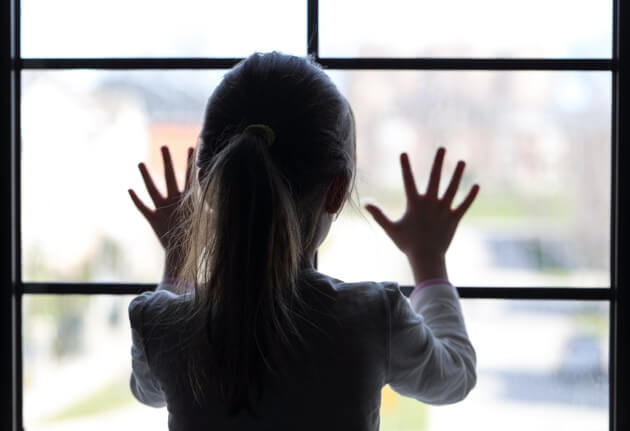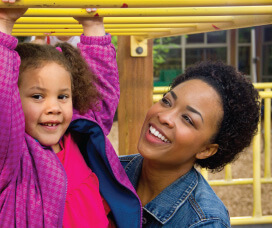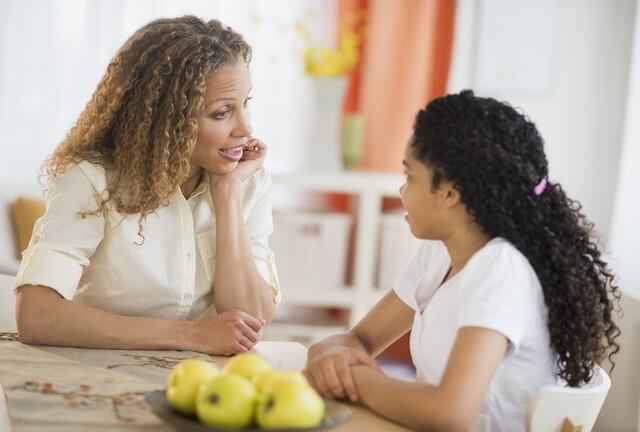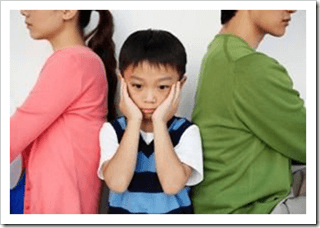By Rosalind Sedacca, CDC Parenting after divorce is always challenging, especially when your children act out. One big issue is handling children if they resist spending time with their other parent. Many factors come into play. Here are 6 crucial questions to ask yourself which can help you determine the source of the problem and understand the reasons why your children are resisting contact with their other parent. Are they feeling guilty or disloyal about leaving your presence? This can easily influence how they react to visits or time away living with their other parent. Have they been privy to information, slurs or other comments that make them dislike their other parent? Do they hear you complain about that parent to family or friends? Are they being raised in an environment hostile towards that parent? Has their other parent been mistreating them or disciplining them in a different way than
Read More
Anger-Conflict Programs for Co-Parenting & Other Life Challenges By Rosalind Sedacca, CDC Are you trying to cope with a negative, confrontational co-parent after your divorce or breakup? It can be enormously challenging at best. Most people acknowledge that staying positive and “taking the high road” is the best way to handle difficult people. But that’s much easier said than done. It’s tough to stay positive when your co-parent exudes negativity toward you with every encounter. Repeated contact with the same stressful outcome will inevitably bring you down. It also drains your energy, bombarding your consciousness with self-doubt and insecurity. A negative, argumentative or disrespectful co-parent can be especially challenging when you are trying to be a positive role model for your children. It’s important to remember: we can’t change other people, much as we would like to. This is particularly true for difficult people who are
Read More
parenting after divorce By Rosalind Sedacca, CDC Sadly, divorce is a time when we experience disconnection. We disconnect from our former spouse. Too often we often have to disconnect from time spent with our children as well. That’s why it is important for you to strengthen your bond with your children. Find ways of strengthening or at least maintaining your connections during this challenging period of transition. This is equally true, when you are living with your children as well as when you are apart. That’s the basis of a Child-Centered Divorce. Children want and NEED to know they are still loved, valued and cared about. Show them, tell them and keep in close communication with them – during the happy times and the sad ones. They need to feel they have a safe place to turn, a shoulder to cry on and a non-judgmental ear
Read More
By Rosalind Sedacca, CDC Sadly, divorce is a time when we experience disconnection. We disconnect from our former spouse. Too often we often have to disconnect from time spent with our children as well. That’s why it is important for you to strengthen your bond with your children. Find ways of strengthening or at least maintaining your connections during this challenging period of transition. This is equally true, when you are living with your children as well as when you are apart. That’s the basis of a Child-Centered Divorce. Children want and NEED to know they are still loved, valued and cared about. Show them, tell them and keep in close communication with them – during the happy times and the sad ones. They need to feel they have a safe place to turn, a shoulder to cry on and a non-judgmental ear when they need it. If divorce has
Read More
Divorce hard for children By Rosalind Sedacca, CDC Not surprisingly, many divorces take place during the spring and summer. This gives families time to adapt to the changes ahead. But it also makes returning to school a challenge for many children of divorce. Here are suggestions for parents to help ease the transition by tapping into the many resources available through the school. That’s why it’s wise to develop a cooperative relationship with key school personnel. Before school starts it’s wise to inform your child’s teachers about the divorce and any changes in your home environment. The more aware they are, the better prepared they can be to help your child. After all, school is often a second home for children – and that may be very comforting during this time of changes and uncertainty. Be Alert For Deep Feelings & Raw Emotions You can’t expect
Read More
By Rosalind Sedacca, CDC There are days – yes, weeks and months – when life can seem awfully low. Often overbearing. The weight can seem just too much to carry. Life challenges related to divorce frequently play a part in these circumstances. And when you’re a divorced parent at the same time … well, you know how it feels! Just know, as well, that you’re not alone. Parenting is tough for everyone, even under the best of circumstances. Parenting through and beyond divorce takes enormous focus and a continuous need for compassion, both for yourself and your children. If you take it day by day, you will find the strength and even the wisdom to make decisions that tap into your innate wisdom and love for your children. But it’s also essential to parent and nurture yourself at the same time. Take a tip from the
Read More
By Rosalind Sedacca, CDC My co-parent tells our kids not to tell me about what goes on at home when they visit. Can’t I ask questions? You’re not alone in being frustrated by finding balance in the privacy versus sharing equation. And there is no simple answer. After divorce most parents want to keep their private lives private and don’t want the children sharing too many details about their visit time. Asking your children to “spy” on their other parent puts the kids in an awkward situation. They feel guilty, pressured and confused, especially if Mom or Dad tells them not to share specific information. This delicate subject needs to be addressed between both parents and agreed upon in advance. Discuss sensible boundaries, taking into account the age of your child. Children should be able to talk to both parents about activities, meals or other innocent details regarding their time
Read More
Divorce catches kids in the middle By Rosalind Sedacca, CDC If you’re a parent, divorce doesn’t end your relationship with your former spouse. It only changes the form in some specific ways. It is still essential to create a working relationship focused on the optimum care and concern for your children. Every co-parenting relationship will be unique, affected by your post-divorce family dynamics. However, there are guidelines that will enhance the results for children in any family. Here are some crucial points to keep in mind to maximize your co-parenting success. Respect your co-parent’s boundaries: Chances are your former spouse has a different parenting style than you, with some conflicting rules. Rather than stress yourself about these differences, learn to accept that life is never consistent and it may actually be beneficial for your kids to experience other ways of doing things. Step back from micro-managing
Read More
Be aware of the emotional toll of divorce on children! By Rosalind Sedacca, CDC: Parenting is always complex. Parenting following a divorce can add many other layers of distraction and confusion to the mix. That makes it even more important for parents to be aware of how their children are responding to the divorce. Misunderstanding your child’s stage of development One common error parents make is misunderstanding their child’s stage of development. That can lead to irrational and unrealistic expectations. Too often parents will assume that their child has a better handle on their emotions and a deeper understanding of human nature than is really possible at their age. So when their child acts out or otherwise misbehaves, it’s easy to misinterpret their intentions. Parents mistakenly see children, even teens, as little adults who bring adult reasoning and comprehension to daily circumstances. With that mindset, it’s
Read More
Family Portrait By Rosalind Sedacca, CDC We all know divorce marks the end of a marital relationship. But when children are involved, it need not mean the end of the family. This is an important distinction for both parents and children to grasp. It can affect how that family is impacted by the divorce. Too often in our culture we look at divorce as a failure. That negative label puts an added emotional burden on parents when they are already feeling vulnerable, ashamed, anxious and confused. Rather than reflecting failure, divorce can be a solution for families. This is especially true for families that have been living with tension, anger, disrespect or other highly charged emotions. For those families divorce may become an intervention. It changes the form of a family, but need not mean the end of that family from a child's eyes. Parents who
Read More













